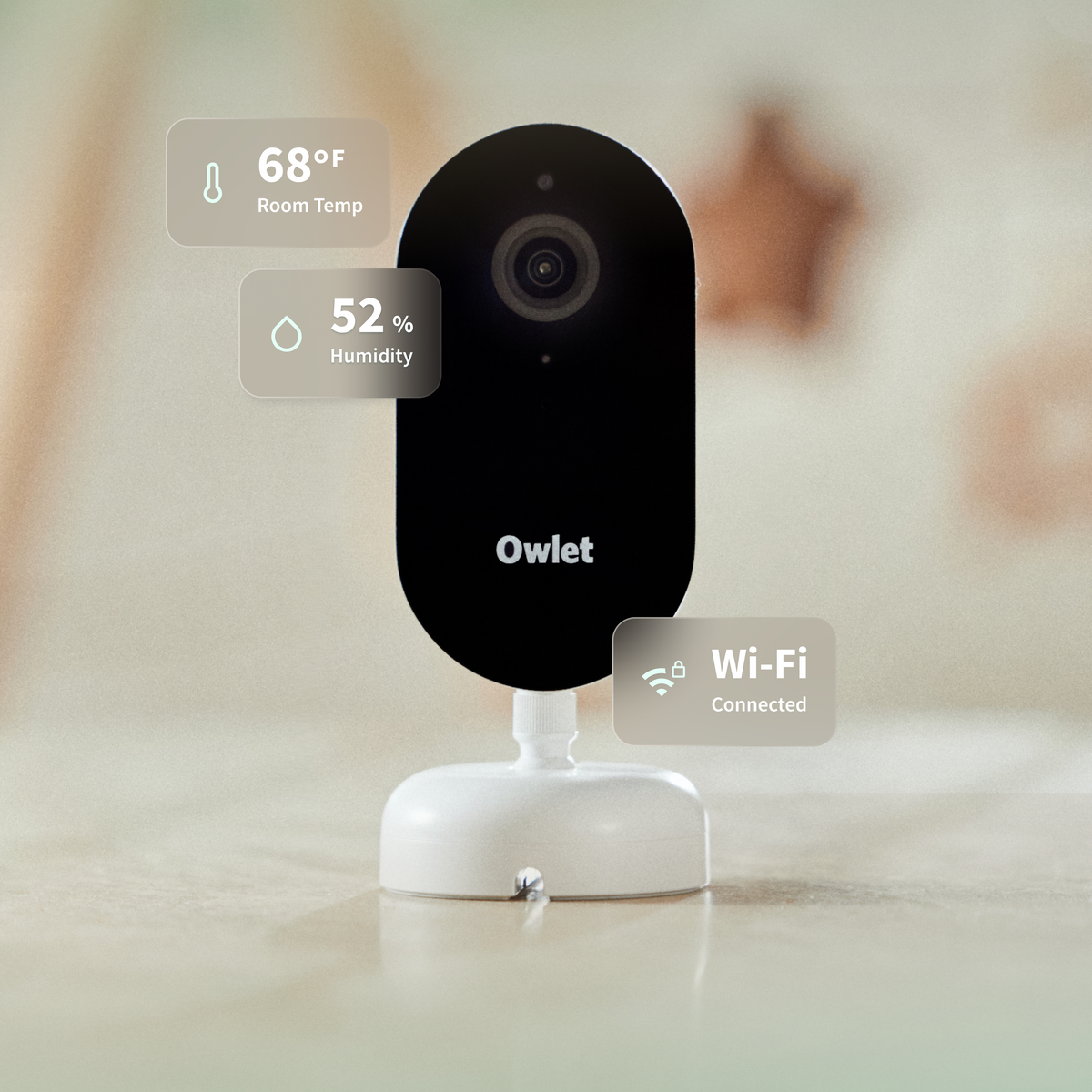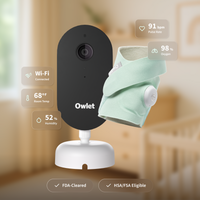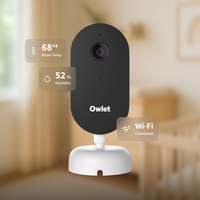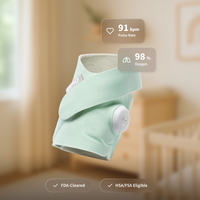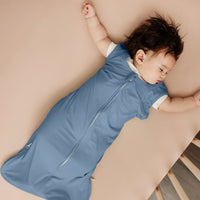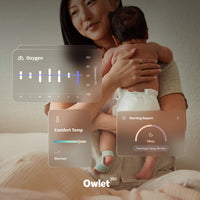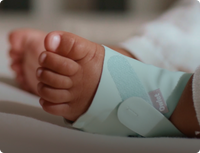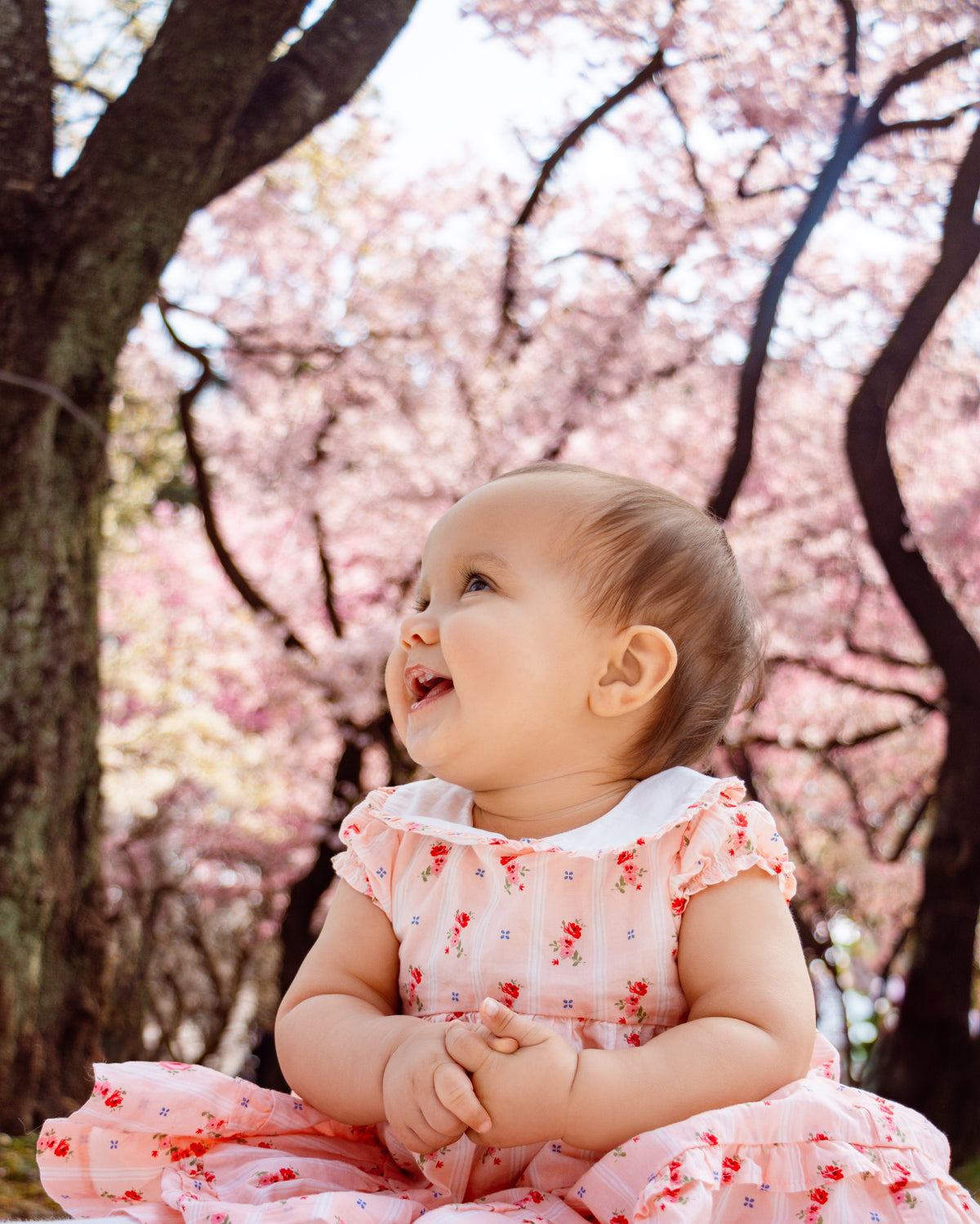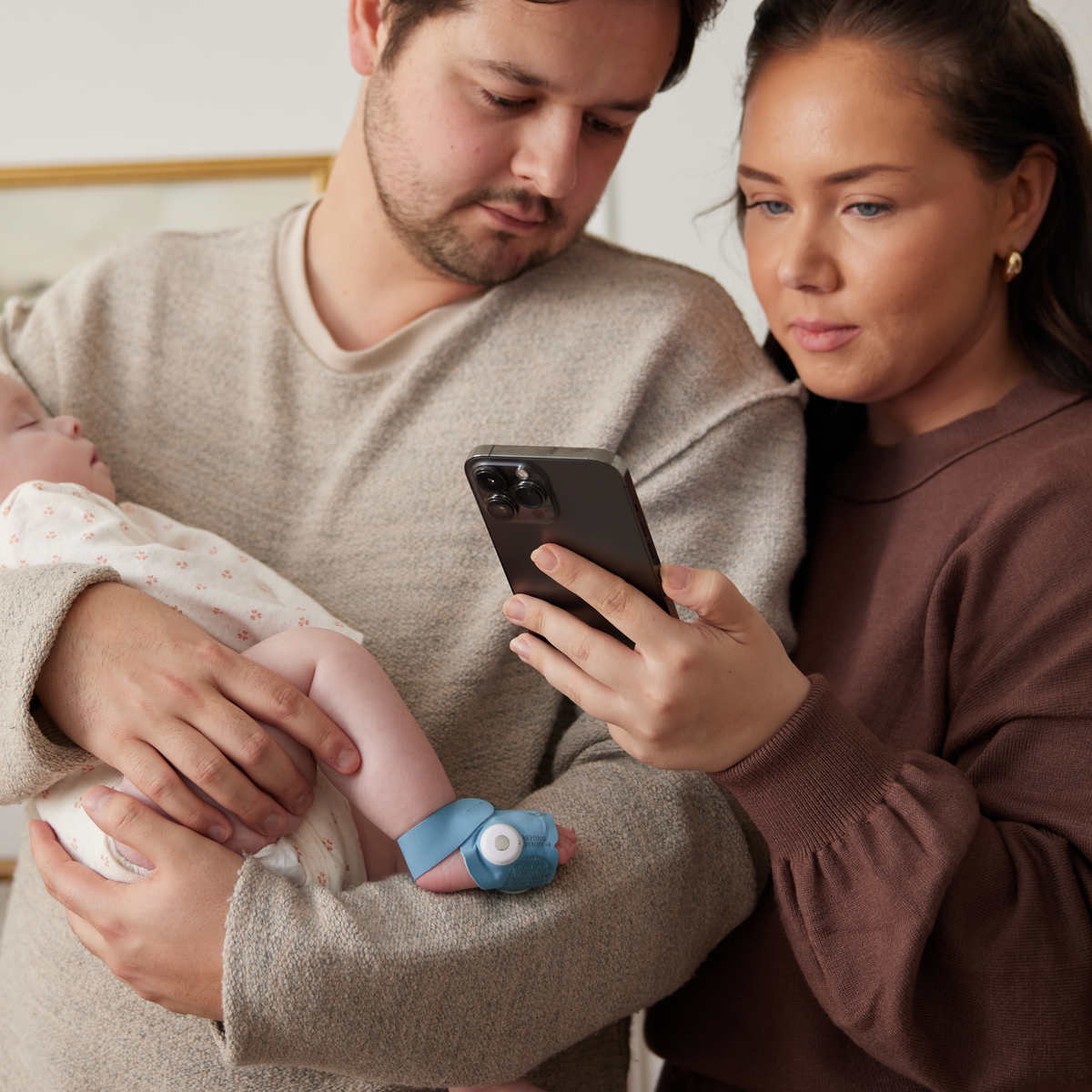Today is the Day My Son Died: One Father’s Story of Loss and Finding Strength
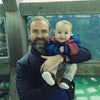
Owlet Cares is our advocacy initiative that is dedicated to making a positive impact in the lives of babies and parents. One way we do this is by partnering with nonprofits all over the world who share our mission. These groups participate in our 3:1 match program. When they purchase one Owlet product, we match it with two, meaning three families are reached.
Each month, we shine a spotlight on one of our foundation partners and the important work they are doing. This month, we’d like to introduce you to Clint Pratch of Caius the Great Foundation. Clint is Caius’s father and co-founder of the foundation that was started after Clint and his wife lost their precious son to SIDS.
Owlet is committed to meeting parents wherever they are in their parenting journey and for many, we know that journey might include loss. As the Father’s Day holiday approaches, here is Clint’s story as he navigates grief, guilt and purpose after the loss of his son.
By: Clint Pratch, Owlet Cares Partner and Co-Founder of Caius the Great Foundation
Death Day
Today is the day my son died.
That’s a difficult reality. Anyone who has experienced a traumatic loss knows exactly what I mean. It’s like being initiated into a club you never wanted to join. And sadly, it's a club that almost everyone will eventually be part of. The only unknown is when. None of us are getting out of this life alive—and maybe the real beauty of living is rooted in that fact though.
As a dad, you try to shield your kids from pain. Knowing that I couldn’t shield Caius from his passing hits me in a deep, self-doubting place that can be absolutely crippling. I feel like I failed him, but mostly I struggle with thinking I wasn’t strong enough to save him and that I am weak. Some days it’s just as fleeting, and some days it hits like a ton of bricks. Through the test of time it has defined me as a person. The struggle is in my thoughts and the thoughts become my reality.
I start thinking about thinking.
I think: Was I too weak to save him?
Then: Why am I even thinking like this? I know it’s not helping.
Then: If I know it’s not helping, why can’t I stop? Am I just weak?
I am thankful for this struggle as it’s in this struggle where I can honor him. It’s a life sentence that will never get parole. While I used to run from it and wish it away. Now I run to it . It doesn’t make it any less powerful, but I know now that it’s a blessing that was given. To be able to work through it. But how can I explain it to someone that is not in the unwanted club? Some might call it the PTSD club or lost a loved one club. It can be a thief of the moments where you want to be present but it can pull you away from the beauty of life.
It's like when you're golfing and having the round of your life, and someone says, “Wow, you’re playing great!” The moment they say that, you become aware of how well you’re playing, and suddenly you’re not in it anymore. You're overthinking. That awareness pulls you out of the moment, and your game can fall apart. Only people who can acknowledge the thought and then re-focus—truly live in the moment—can keep going. That’s what I think mental toughness is: the ability to be present, despite everything.
Time doesn’t move backward. We don’t get infinite chances, so we don’t get infinite moments. So how do you hold onto those moments while still facing reality?
Going back to golf for a second—say you’re playing better than ever and someone points it out. You’re faced with the facts: are you just getting lucky? Have you improved? The funny thing about golf is it can be both. Or maybe you’ve become such a stone-cold sociopath that self-doubt no longer exists—but then so does joy, and what's the point of that?
The reason I bring this up is because you can’t fake it when it comes to something you truly care about—especially when it’s something you love. You have to put in the work. You have to practice.
And for me, the work is talking about my son. Talking about my time with him. Talking about the trauma of losing him. And then doing something meaningful in his name, to make the world a better place.
That’s my practice.
It’s how I prepare myself, how I earn the right to live in the moment again. When I talk about who Caius was, or about losing him, I’m not just grieving—I’m working toward becoming stronger. Whether it’s helping others through our foundation (Caius the Great Foundation), supporting someone through their own loss, or even just helping myself survive a hard day… that’s the work.
Caius was the kind of baby that got double takes everywhere. I’d walk through the grocery store with him and feel like I was walking with a celebrity. People couldn’t help but look—he had an aura. But let’s call it what it was: he was a beautiful baby. His eyes felt like they were looking into your soul.
Once, we were at a fast-food restaurant. My wife Chantal is vegan, so we were ordering separately—trust me, ordering for her is a fool’s errand. While I was sitting with Caius, he started staring at this man a couple tables away. At first the guy was kind of awkward about it, but Caius just kept staring. And then he did this thing he always did after five months—he’d shout “Hey!” I don’t know if he meant “hey,” but it fit. And this man’s face lit up. It got almost embarrassing. If I had known I’d only have seven months with Caius, I wouldn’t have shushed him—I would’ve let him shout “Hey” to the whole room.
That’s who he was—an adventurous, playful baby who loved fun. And I loved that moment.

As for imagining what he would be like today—that’s a heartache cocktail I try not to drink. The truth is: he’s not here. And guessing who he would’ve become only leads right back to that same painful reality.
The Reality (this part isn’t easy—feel free to skip it if you need to):
Caius passed away in the night when he was just seven months old. That morning, I got up early to take a bath—something I used to do on weekends. While I was relaxing, I heard a blood-curdling scream. I felt like I was floating as I rushed to the door, Chantal was holding Caius and handed him to me, hoping I could save his life.
But the moment I held him, I knew he was gone.
I tried to wake him up—I yelled; I shook him, I asked him to please wake up. I told Chantal to call 911. I brought him to the bed to start CPR, even though I knew CPR should be done on a hard surface. When I blew air into his lungs, they filled, and for a moment I felt hope. I told Chantal, “This is good, I think he’s going to be okay.”
Then I realized my mistake and moved him to the floor. I don’t remember how long I was doing CPR, but all I could think was that the ambulance would arrive and shock him back.
That was my only hope.
When the paramedics came, we pleaded with them—please bring him back. It was the most desperate plea I’ve ever made. I prayed for a miracle. I prayed that it was just a dream. I even prayed for God to take me instead. I don’t believe in God that way—but it didn’t matter. That level of desperation is beyond belief.
And then they said he was gone.
For a year, life had no color. I didn’t understand the point of getting out of bed. But over time, the smallest glimmers of purpose started to shine through.
Here’s what I’ve learned: telling Caius’s story and sharing the trauma of losing him—those are two different things.
Caius is beauty and innocence.
The trauma is a life lesson.
In sharing both, I earn the right to grow. I get a chance to earn my strength.
Just like a golfer has to practice their swing and manage their thoughts, my practice is telling stories about Caius’s laugh, about how I felt when he was born. My practice is in how I answer when someone asks, “How many kids do you have?” I say three—not two. If they ask how old, I tell them the ages of my two living children and say, “One is an angel.”
I’m prepared to honor him. It doesn’t mean I won’t cry when I talk about him—but those tears aren’t weakness. They’re love. They’re gratitude. They’re pride. Because when I speak about him, it feels like he’s right there with me. Damn, that feels good. I didn’t always think that way but in this practice, I have made a choice to run towards it. It's in the place of running towards it where things have done a 180.
Through our foundation, we’ve been able to donate Owlet baby monitors. There are bigger organizations in the U.S. doing the same thing, and what they call the day your child dies is “Angel Day.” Now, I know words mean what we assign to them. But “death” means an end, and “angel” means a benevolent spirit. Angel describes Caius perfectly.
For seven months, he was our angel. When he passed, he became everyone else’s.
I like to think I’m his voice here among us—and I’ll keep speaking for him until the day I pass. And when that day comes, I hope I get to see him again, so I can thank him for giving me my purpose.
That purpose is to be his dad, being his dad that means I get to help others and be the best dad I can be for my other two children.
So, I’ll leave you with this:
HEY!
For everything you hold dear, it’s worth putting in the work.
Because it’s in the practice of that work that you’ll find your strength.
I love you, Caius.

Author Bio:
I’m a proud father to three beautiful children: Cooper, Carys, and our angel, Caius. My best friend and greatest support is my wife, and together we've built a life rooted in love, resilience, and purpose.
My life's mission is deeply connected to my passion—helping others improve their mental and physical health. I take immense pride in my children and cherish every moment I get to spend with them.
In memory of Caius, I dedicate time to raising awareness for Owlet Cares, in hopes of helping other families avoid the heartbreak we experienced. It’s a cause close to my heart, and one I’ll never stop advocating for.
Outside of my family and advocacy work, I love playing sports, traveling the world, and staying active through fitness. Life is a journey, and I'm doing my best to live it with intention, love, and purpose.
Disclaimer: The quotes, stories, and experiences included here are those of the individuals and are not representative of Owlet's views or claims about our product. Individuals were not paid and did not submit their information as part of any paid promotion by Owlet.
